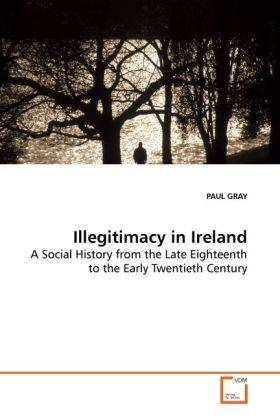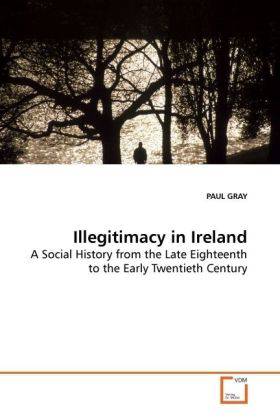
Bedankt voor het vertrouwen het afgelopen jaar! Om jou te bedanken bieden we GRATIS verzending (in België) aan op alles gedurende de hele maand januari.
- Afhalen na 1 uur in een winkel met voorraad
- In januari gratis thuislevering in België
- Ruim aanbod met 7 miljoen producten
Bedankt voor het vertrouwen het afgelopen jaar! Om jou te bedanken bieden we GRATIS verzending (in België) aan op alles gedurende de hele maand januari.
- Afhalen na 1 uur in een winkel met voorraad
- In januari gratis thuislevering in België
- Ruim aanbod met 7 miljoen producten
Zoeken
Illegitimacy in Ireland
A Social History from the Late Eighteenth to the Early Twentieth Century
Paul Gray
Paperback | Engels
€ 77,95
+ 155 punten
Omschrijving
This study examines illegitimacy in Ireland from the
late eighteenth to the early twentieth century. It
has been undertaken against a backdrop of shifts in
social policy in the United Kingdom where single
mothers and their children have assumed a major
significance. Concerns over the family, children, and
deviations from sexual and social norms, are
recurring themes in social history and it may not be
too great an expectation that the past may
illuminate, however dimly, areas of current debate.
This study presents a general overview of the
literature on illegitimacy including the available
Irish literature. It also presents data obtained from
Presbyterian church courts in the eighteenth century
and a quantitative analysis of parish register
material on illegitimacy and pre-nuptial pregnancy in
the nineteenth century. In addition, evidence is
examined in relation to other important topics
concerning illegitimacy such as regional persistence
and also the workhouse. The study will be of great
interest to social historians, researchers, social
policy makers, and those who study the history of the
family, sexuality, welfare, poverty, and the social
history of Ireland generally.
late eighteenth to the early twentieth century. It
has been undertaken against a backdrop of shifts in
social policy in the United Kingdom where single
mothers and their children have assumed a major
significance. Concerns over the family, children, and
deviations from sexual and social norms, are
recurring themes in social history and it may not be
too great an expectation that the past may
illuminate, however dimly, areas of current debate.
This study presents a general overview of the
literature on illegitimacy including the available
Irish literature. It also presents data obtained from
Presbyterian church courts in the eighteenth century
and a quantitative analysis of parish register
material on illegitimacy and pre-nuptial pregnancy in
the nineteenth century. In addition, evidence is
examined in relation to other important topics
concerning illegitimacy such as regional persistence
and also the workhouse. The study will be of great
interest to social historians, researchers, social
policy makers, and those who study the history of the
family, sexuality, welfare, poverty, and the social
history of Ireland generally.
Specificaties
Betrokkenen
- Auteur(s):
- Uitgeverij:
Inhoud
- Aantal bladzijden:
- 344
- Taal:
- Engels
Eigenschappen
- Productcode (EAN):
- 9783639139631
- Uitvoering:
- Paperback
- Afmetingen:
- 150 mm x 220 mm
- Gewicht:
- 531 g

Alleen bij Standaard Boekhandel
+ 155 punten op je klantenkaart van Standaard Boekhandel
Beoordelingen
We publiceren alleen reviews die voldoen aan de voorwaarden voor reviews. Bekijk onze voorwaarden voor reviews.









